Apr 2, 2024 12:59 PM
Saxophonist, Sonic Explorer Casey Benjamin Dies at 45
Casey Benjamin, the alto saxophonist, vocalist, keyboardist and producer who stamped his distinctive sounds on the…
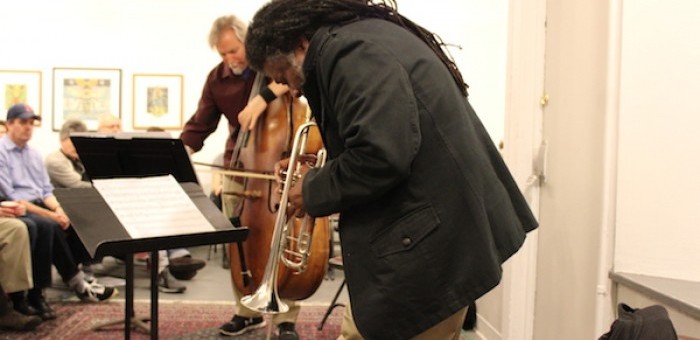
Wadada Leo Smith
(Photo: Courtesy Cuneiform Records)Trumpeter Wadada Leo Smith is a multi-award winning composer, performer and educator, shortlisted for the 2013 Pulitzer Prize for Music for the four-disc set Ten Freedom Summers (Cuneiform).
Smith has been a pioneering artist for well over 40 years. Now 74, he continues to educate, compose and perform, adopting a schedule that would exhaust musicians half his age.
Smith’s latest release is America’s National Parks (Cuneiform), a tribute to the natural landscapes of the United States and the ideals they represent.
In early 2017, Smith will head to Europe for a series of dates with pianist Vijay Iyer, with whom he collaborated on the recent album A Cosmic Rhythm With Each Stroke (ECM).
You’ve been called a “free-form jazz” musician. What do you call your style of music?
I call it creative music. It has been around for a long time, since the early days of Louis Armstrong, and it survived in the music of Frederick Henderson and Duke Ellington. They called it creature music as well. Back then, black musicians didn’t think about fighting for the name to call the music they made. They knew they had no rights that the rest of the world would recognize. So when people called it jazz, or colored music, they went along with it because they knew they had no power to change it. The only people who carried on calling it creature music were Anthony Braxton and I. We saw the bigger picture. I know that Lester Bowie saw the bigger picture as well. Seeing the bigger picture opens your eyes to what is the truth.
Do you think the term “creative music” conveys a wider or narrower sense of identity?
We see the jazz masters—the great and the lesser masters—as being the same as us; they are not separate. We know their music got called jazz because they didn’t have the means to correct it. We have corrected it.
Jazz infers a style, but creative music has a wider field and wider specification about it. We know it from people like Scott Joplin, and on through Bessie Smith.
You had considerable experience in your early career as a sideman. Did that experience inform your experience as a bandleader?
When I first started, I worked with my father, Alex “Little Bill” Wallace; he was a guitarist like B.B. King. I was around 13 when I started, and I learned a lot by looking and listening. I learned how to be a bandleader from watching that band work. I believe I learned how a bandleader works, and I learned what not to do as a leader, which is almost as important!
By the time I met people in the ACCM [Association for the Advancement of Creative Musicians] in 1967, we had erased the term sideman. We had the responsibility for being players in other people’s bands, and the ensemble leaders in our own bands. We got rid of the word sideman. The reason is, if we had something to say to a bandleader, we would say it, and we would welcome that from musicians in our own bands. Sidemen don’t usually do that; they do as they are told, and that was the important distinction that I wanted to make.
You have received a number of prestigious awards in your career—as a composer, as a performer, as an educator. Do those awards mean a lot to you?
Yes, they do mean a lot. I don’t set out to win awards, I don’t think any musician does, but when you receive an award, it’s an affirmation, it means that people appreciate what you do. Every award I have received is a confirmation of something I have done, and that motivates me to push a little harder. I am always looking for the next idea, for the next fulfilment.
You have a very successful career writing and performing. Did you ever consider specializing in one or the other?
No, never. I started composing when I was around 13, and back then people used to say that I needed to be a composer or a performer, but I can’t be good at both of them. I could never understand why anyone would say that. Jellyroll did both, Bessie Smith did both, and so did I.
I have composed and performed throughout my career, and I also taught music in schools for 30 years. I retired from teaching in 2013, and now I spend my time on the other two great loves of my life. I saved my money during those years, I am in good shape.
Do you write all the time, or do you set aside time when you have a specific project to complete?
I write all the time, I always have. I can pick up my horn to warm up and an idea will pop into my head, and I’ll write it down and file it away for another time. Duke Ellington wrote every day for 50 years … thousands of compositions. He was on the road for eleven months of the year, and he used to write in hotel rooms, rehearsal spaces, sound checks.
The thing is, an artist like Duke Ellington could always rely on what he had written, but he still wanted to write more. I really admire that attitude.
Do you keep everything you write?
Pretty much. I have learned that even if something doesn’t work right now, it may fit into something down the line. Duke used to tear his abandoned ideas into tiny pieces so no one else could find them and use them. I just keep things, and then when the idea pops back in, I’ll find it, and work it up into something.
For new listeners to your music, what’s a good introduction to your work?
I would go with Ten Freedom Summers. It has a good range of musical styles, and the pleasure of it is working your way through it and finding what you like. Take the challenge of listening to something that doesn’t register right away, because the rewards are deep and very worthwhile.
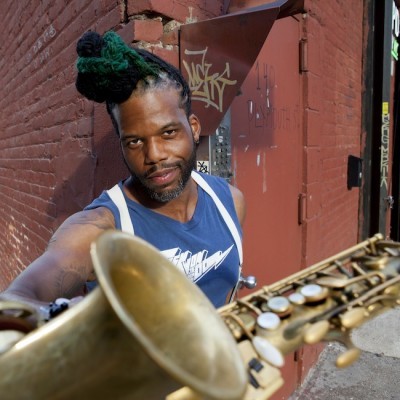
Benjamin possessed a fluid, round sound on the alto saxophone, and he was often most recognizable by the layers of electronic effects that he put onto the instrument.
Apr 2, 2024 12:59 PM
Casey Benjamin, the alto saxophonist, vocalist, keyboardist and producer who stamped his distinctive sounds on the…
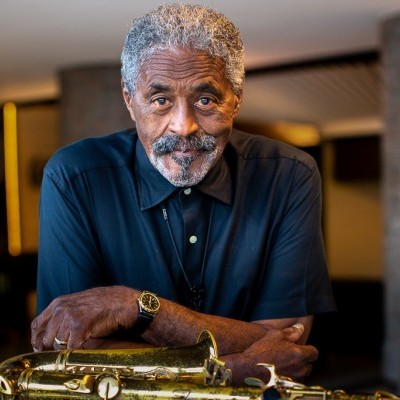
“He’s constructing intelligent musical sentences that connect seamlessly, which is the most important part of linear playing,” Charles McPherson said of alto saxophonist Sonny Red.
Feb 27, 2024 1:40 PM
“I might not have felt this way 30 to 40 years ago, but I’ve reached a point where I can hear value in what people…
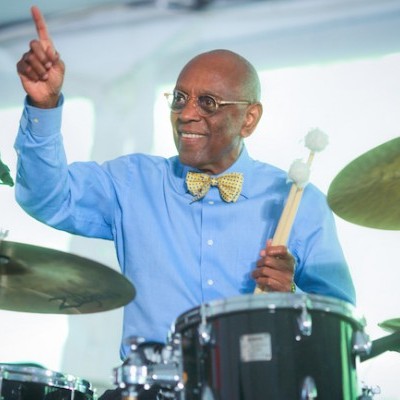
Albert “Tootie” Heath (1935–2024) followed in the tradition of drummer Kenny Clarke, his idol.
Apr 5, 2024 10:28 AM
Albert “Tootie” Heath, a drummer of impeccable taste and time who was the youngest of three jazz-legend brothers…
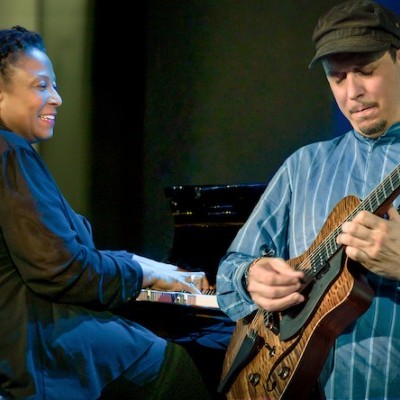
“Both of us are quite grounded in the craft, the tradition and the harmonic sense,” Rosenwinkel said of his experience playing with Allen. “Yet I felt we shared something mystical as well.”
Mar 12, 2024 11:42 AM
“There are a few musicians you hear where, as somebody once said, the molecules in the room change. Geri was one of…
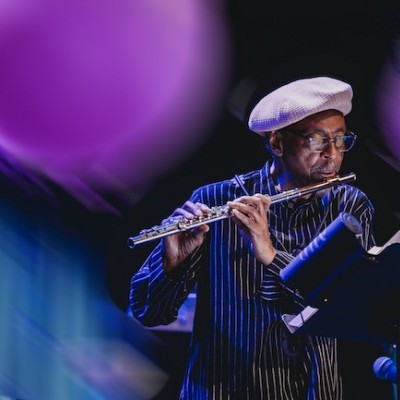
Henry Threadgill performs with Zooid at Big Ears in Knoxville, Tennessee.
Apr 9, 2024 11:30 AM
Big Ears, the annual four-day music celebration that first took place in 2009 in Knoxville, Tennessee, could well be…